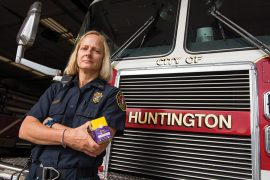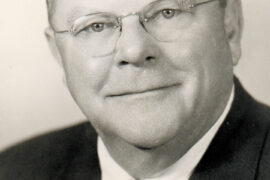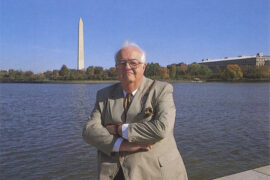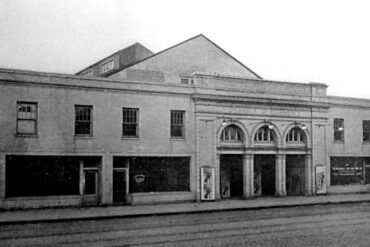West Virginia’s most influential national leaders examine the future of their state
By John H. Houvouras
HQ 4 | SUMMER 1990
Just a few years ago West Virginia was a state in crisis. The unemployment rate was one of the highest in the nation. Coal was no longer king. Citizens were leaving the state in record numbers. But today, thanks to the efforts of such leaders as Sen. Robert C. Byrd, Sen. Jay Rockefeller and Rep. Nick J. Rahall, West Virginia is on the rebound. And these three men aim to see that the state avoids the pitfalls of the past.
Although each man expects coal to remain a staple of the state’s economy, all stress that West Virginia must alleviate its reliance on coal through diversification of the state’s economy.
One area in which the state can diversify is the tourism industry. But to increase the flow of tourists into West Virginia, highway access must be improved. That’s why West Virginia’s Congressmen have helped secure millions of federal dollars for highway construction in their home state.
Byrd, Rockefeller and Rahall believe that although the state of West Virginia has suffered, it is now in a position to move ahead. Together with strong national leadership and an improved national image, they believe that the state can realize its full potential.
Sen. Robert C. Byrd
Deemed one of the most powerful men in the U.S., Robert Byrd has what it takes to help West Virginia
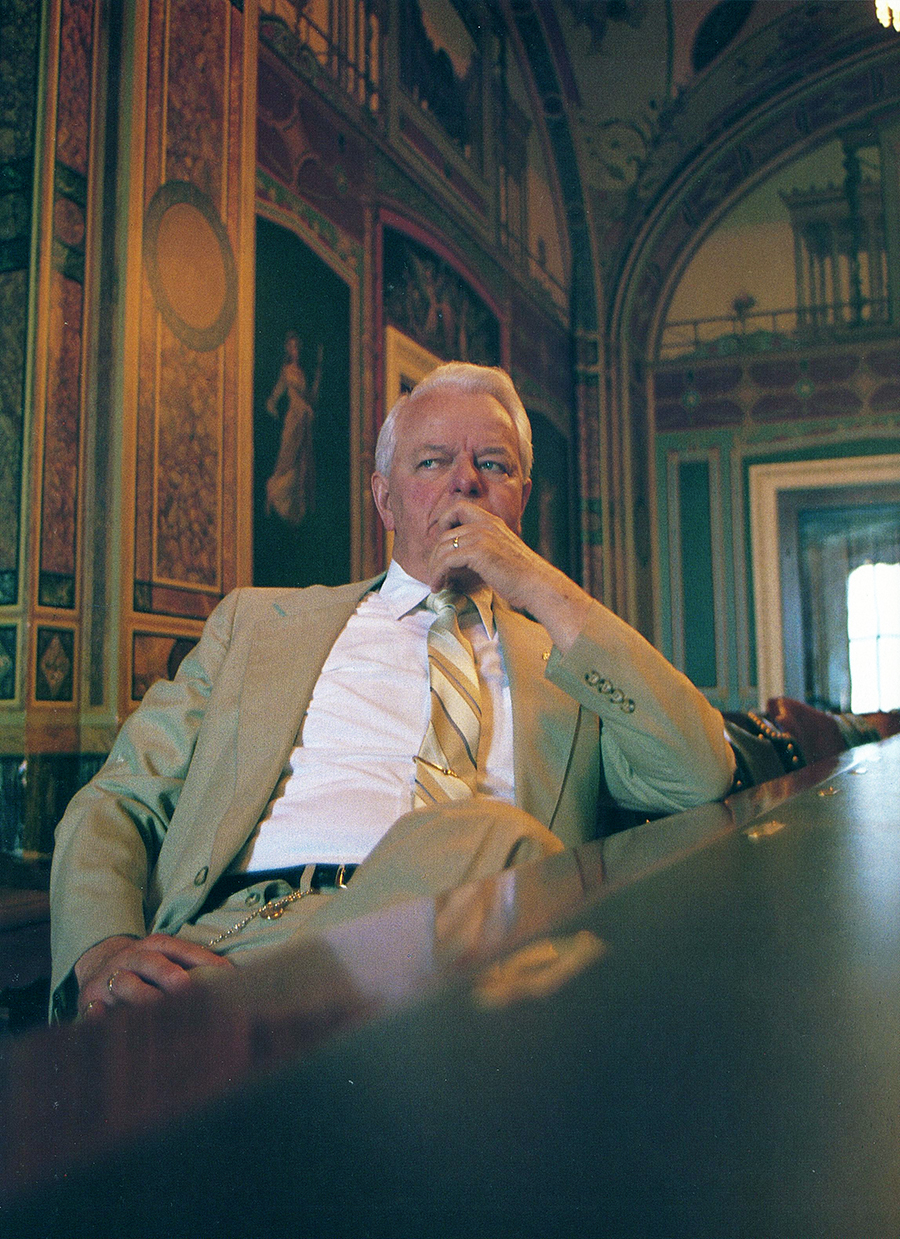
He is a distinguished-looking man. He speaks slowly, distinctly, his words carefully chosen. He is, among other things, a lawyer, politician, statesman and leader as well as a husband, father and fiddle player. He is a West Virginian and he is one of the most powerful men in the United States. His name: U.S. Sen. Robert Carlyle Byrd. Byrd was born Cornelius Calvin Sale, Jr. on Nov. 20, 1917, in North Wilkesboro, N.C. His mother died in the 1918 influenza epidemic.
In accordance with his wife’s final wish, Cornelius Sale, a factory worker with four older children to raise, entrusted his son to his sister Vlurma and her husband Titus Dalton Byrd, whose only child had died. They renamed their nephew Robert Carlyle Byrd and over to West Virginia where Robert’s new father worked as a coal miner. In the midst of the Great Depression, Byrd graduated as valedictorian from high school at the age of 16 He held jobs in the following years as a gas state attendant, butcher and welder before beginning his political career. It was not until he won a seat in the state legislature that he began and completed his undergraduate degree at four different schools.
Recognizing the importance of legal training to his work in Congress, Byrd, in 1953, enrolled in evening law classes. Decade later he received his degree graduating cum laude from American University’s Washington College of Law – the only person ever to have begun and completed the study of law while serving in the Congress.
Today, looking back on a stellar career in the United States Senate, Robert C. Byrd is focused. No longer a political figurehead for his party, Byrd recently stepped down from his prestigious job as majority leader of the Senate to take over the powerful post as chairman of the U.S. Senate Appropriations Committee. In control of literally billion of dollars, Bryd is indeed focused, and the subject of his vision today is his home state. For example, in a little more than one week in July, Byrd funneled $206 million to West Virginia for the completion of the state’s highway corridors: a massive road system that will bring new jobs and economic recovery to the state. The powerful display reflects not only Byrd’s loyalty to the state, but his vision for West Virginia’s future as well.
“I think the key to the future economy of West Virginia, in great measure, is the opening of the state with the completion of these corridors,” says Byrd. “I plan to expedite the construction of these highways that bring jobs to West Virginia, that attract tourism and enhance the opportunity for business and industry to locate and grow in West Virginia. That’s one of the driving forces I bring to the Appropriations Committee.”
Byrd also looks to the past when he considers the future of West Virginia. In particular, he sees a “new coal” as being a key to the state’s economy.
“Coal is one of the great pillars of the West Virginia economy,” he explains. “However, I think we must recognize the need to enhance the environmental acceptability of coal. I have developed a clean coal technology program and has appropriated $2.7 billion to the program. The idea os to make the fuel more acceptable – to clean it up and this, increase its use.”
Byrd sees diversification as another key to unlocking the state’s potential. “We must diversify our economy to keep the young people here,” says Byrd. “In this regard, we need to strengthen our educational system, which I’ve strongly supported on the Appropriations Committee.
“Another example of how we must diversify our economy is the tourism industry,” Byrd explains. “We have much to be proud of and much for tourists to see. We’re a hospitable, warm, friendly people and we need to accentuate that.”
It was Robert Byrd who was responsible for the FBI’s recent decision to relate its fingerprinting division to Clarksburg, W.Va. The powerful move will bring some 2,000 jobs to the area. “I have consistently sought to bring to the attention of government agencies and the private sector the benefits of movie to West Virginia. As I tell them, it’s the place to go and it’s the place to stay,” Byrd boasts.
It’s that kind of power and influence that makes Sen. Robert C. Byrd one of West Virginia’s best friends.
Sen. Jay Rockefeller
A former governor is courting big business and welcoming the world to the REAL West Virginia
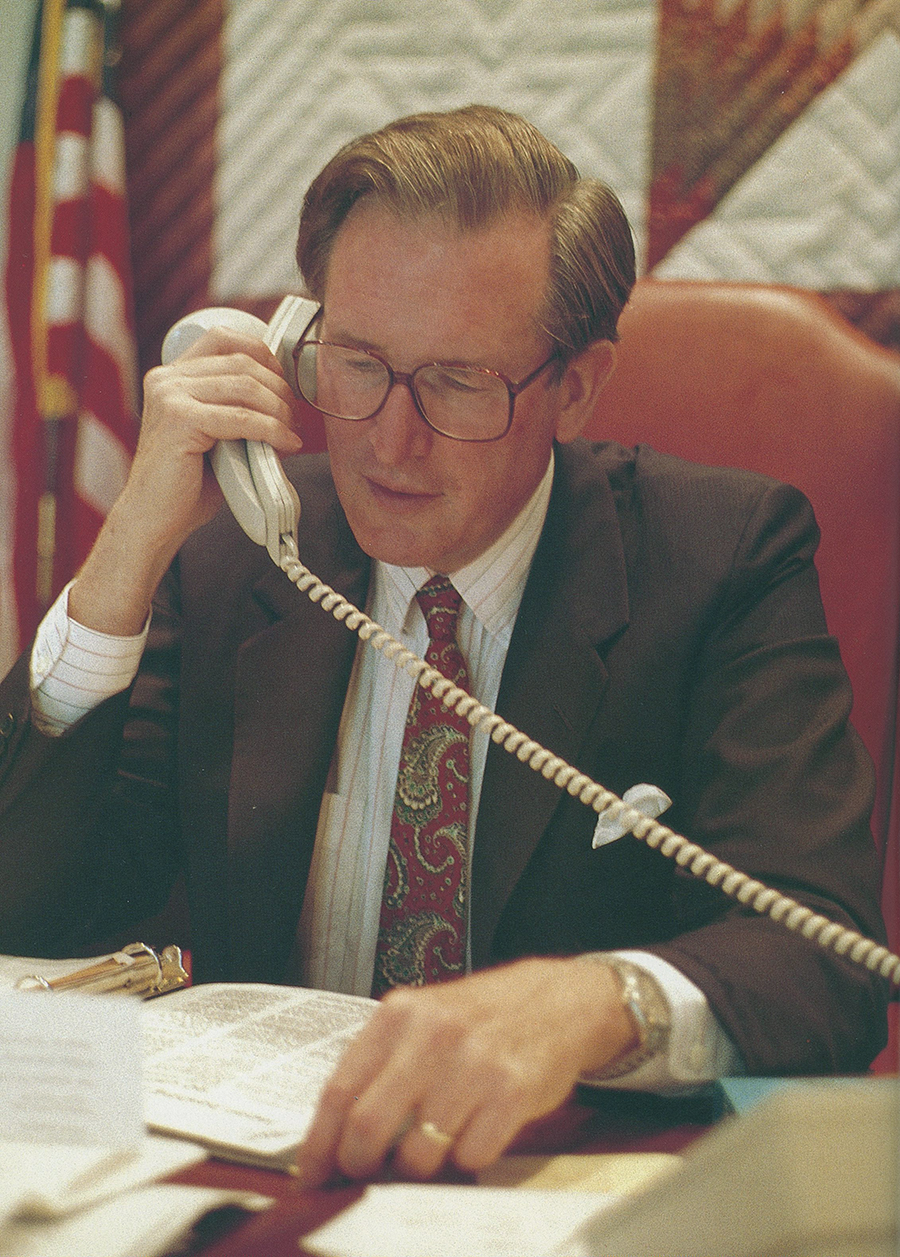
John D. Rockefeller, IV. Despite being born into one of the wealthiest families in America, “Jay” Rockefeller, as he is known to most state residents, came to Emmons, W.Va. in 1964 under the VISTA program, a domestic division of the Peace Corps. It was in West Virginia that Rockefeller began a career in public service. Today, 25 years later, former governor Jay Rockefeller can be found in the nation’s Capitol, still dedicated to the ideals and public service that brought him to his adopted home state of West Virginia.
Rockefeller, historically an ardent supporter of coal energy, continues today to push for federal legislation that would diversify the uses of the abundant fossil fuel. He sees the future of West Virginia’s economy still relying heavily on coal through the 21st century and continues to discover new uses for the energy source.
“We have to look for new uses for coal,” Rockefeller insists. “This is crucial, crucial, crucial.”
An example of some of the many ways Rockefeller has proposed using coal as an alternative energy source is coal-based methanol, the fuel used by drivers in the Indianapolis 500.
“Methanol is an accelerating technology,” says Rockefeller. “However, it’s future depends on how aggressive we are in our research.”
In 1988, Rockefeller introduced visionary legislation that promoted alternative fuels such as methanol. The bill also seeks to spur the commercial production of alternative fuel vehicles by offering American automobile manufacturers strong financial incentives for building fuel-flexible cars in the 1990s.
An example of such a vehicle is the electric car. The cars, which can travel up to 60 mph, can be recharged each evening at the owner’s home.
“They are totally clean, totally efficient and suit our environmental concerns,” Rockefeller explains.
As Rockefeller points out, coal is the only thoroughly sustainable source of energy in the world. “Fifty percent of our oil and one-third of our trade deficit could be eliminated by the use of coal.”
Rockefeller has also pushed for numerous initiatives to bolster tourism in West Virginia. A recent example is Rockefeller’s plan to “package” the state of West Virginia with other bordering states in a tourism marketing strategy.
“The problem in the past has been people coming to a certain place on the East Coast and not venturing out.”
The essence of the program involves a travel agency selling you a package. For example, from Washington, D.C., the traveler could drive on to Colonial Williamsburg, Va., and finish the trip off white water rafting in West Virginia. “Tourism is so fast-growing it’s scary,” says Rockefeller.
Like Sen. Robert C. Byrd, Rockefeller believes strongly that the future of West Virginia is riding on its roads. Accessibility has become the latest “buzz” word in Washington when Congressmen talk economic development.
“The completion of the state’s corridor system will be the single most important development act for the future of West Virginia,” Rockefeller asserts.
Jay Rockefeller’s powerful connections withe the Japanese are well-known. It was because of Rockefeller’s efforts that West Virginia recently set up a trade office in Tokyo, a move applauded by many economic experts throughout the state.
Finally, in an effort to bring economic development to West Virginia while, at the same time, attempting to challenge many of the misconceptions about the Mountain State, Rockefeller recently initiated a program entitled “Discover the REAL West Virginia.” Under the program, Rockefeller escorts a select group of business leaders to West Virginia for a day and literally shows them what the state has to offer in terms of business, industry, tourism and livability.
“We need to get West Virginia better known,” says Rockefeller. “We need to get the word out about the nature of our workers.
The program is all about getting international people and, particularly, business leaders in the country to come in and discover the REAL West Virginia.
“This is my way of trying, in my daily search here in Washington, to bring new jobs to West Virginia.”
Rep. Nick J. Rahall
A Congressman committed to helping Huntington and elevating West Virginia’s national reputation
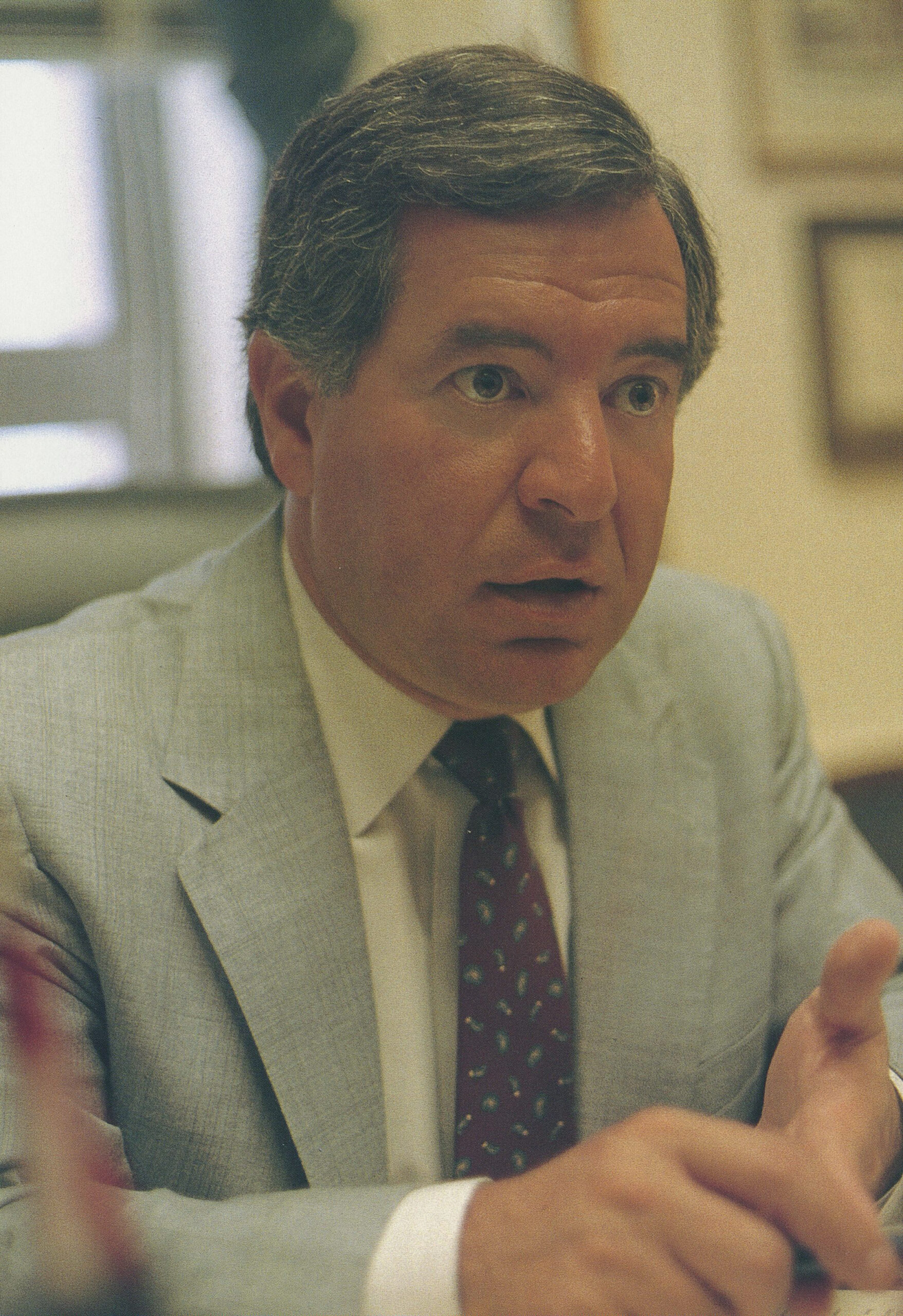
For the last 14 years, Beckley native Nick J. Rahall has been going to bat for Southern West Virginia as a House Representative in the U.S. Congress. For Rahall, an experienced legislator and refreshing idealist, the future for West Virginia is bright.
Despite recent national environmental legislation (The Clean Air Act) that was predicted to adversely affect the economy of West Virginia, Rahall sees opportunity in the act.
“The Clean Air Act will help Southern West Virginia’s coal industry,” Rahall asserts. “We have the best coal in the word, bare none, in Southern West Virginia. Power companies will be looking at low-sulphur, Southern West Virginia coal to meet their SO2 reductions under the Clean Air Act, and we’ve got what they’re looking for.”
However, Rahall insists that he can’t let those comments go by without a caveat: “We still need to be competitive,” he warns. “We can’t just sit back and expect the demand for our coal to automatically fall out of the sky. We still have to compete against low-sulphur western coal. We still have to compete with imported coal, believe it or not.”
Rahall says that the United States has been importing low-sulphur coal from such countries as Columbia and Venezuela. “I’ve been trying for eight years to impose a tax on imported coal.”
Rahall also feels strongly that Northern West Virginia will not be as adversely affected by the Clean Air Act as many first predicted.
“The situation in Northern West Virginia won’t be as bad as some of the scenarios I’ve been painted. We’ve currently adopted a Laid-Off Workers Protection Amendment in the House and I’m optimistic the bill will eventually pass in the Senate.”
It was Nick Rahall who recently secured 41.2 million for the upgrading of Huntington’s Harris Riverfront Park. The money will be used to add a third entrance to the park at Eighth Street and will provide a permanent dock for the West Virginia Belle. Rahall went personally to the chairman of the House Energy and Appropriations Subcommittee and testified last March on behalf of the city. He also was responsible for the appropriation of an additional $500,000 to study the opportunities for enhancing urban waterfronts in West Virginia along the Ohio River.
Another area that Rahall maintains is a key to the future of West Virginia is the state’s infrastructure.
“I would hope that some of the so-called peace dividend that comes from reductions in defense spending will be redirected to the hills of Appalachia: toward our road needs, toward building a wayport.”
Rahall is one of the country’s biggest backers of the wayport concept. It calls for the construction of six super-hub airports in rural parts of the country to help alleviate much of the congestion in the nation’s bigger airports. The six wayports would serve as transfer points where planes could land, re-fuel and move on.
The proposal, now being considered by the FAA, would be an economic shot to the arm of Southern West Virginia should it land one of the six sites.
Finally, Rahall insists that much of West Virginia’s future is riding on its national image. In fact, Rahall challenges negative accounts of the state and contends that reporters are missing the story with regard to the state’s image.
“It’s not as dismal as one might think – certainly not as dismal as the national media would have us believe,” Rahall asserts.
“Those pointed-head intellectuals come to West Virginia, spend one or two days, and then go back and write for their publications thinking they know all about us,” says Rahall, a graduate of Duke University. “That’s not an accurate portrayal.
“However, I think we’re finally getting our message out around the country. And, it’s a positive message. Our new advertising campaign has been very effective. From what I’ve been told, the toll free 1-800-CALL-WVA lines have been ringing off the hook.”
Apparently, people are becoming interested in West Virginia as a tourist hot spot and, for a state that has been riddled by negative national press for so long, that’s good news.
As Rahall himself says, the future of West Virginia has arrived.

